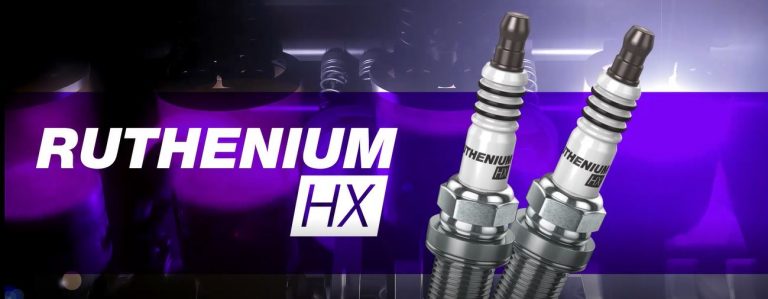This article deals with the pros and cons of Ruthenium spark plugs. Now, spark plugs are essential components of the fuel delivery system in automobiles. The function of the spark plugs is to ignite the air-fuel mixture to produce power. Spark plugs are used in petrol-powered cars. The diesel powertrains rely on compression pressure to ignite the air-fuel mixture. The ignition point of petrol is higher than that of diesel because of the anti-knocking properties required in petrol powertrains. Hence, an external source is required to spark the mixture. That is where spark plugs come in and get their name from.
Also read: How Does Combustion Work In An Engine – Fuel Injectors And Spark Plugs!

Having a reliable and high-quality spark plug is essential as it can affect the emissions, performance and fuel economy of a vehicle. The quality of ignition defines almost all the essential parameters of a car. One can even control and alter these parameters according to tweaks in the spark plugs. Hence, the quality of spark plugs matters a lot. Ruthenium spark plugs are relatively a modern alternative to iridium, platinum or nickel spark plugs. Here are some of the pros and cons of the Ruthenium spark plugs.
Ruthenium Spark Plugs – Pros and Cons
- The Ruthenium spark plugs offer high ignitibility which ensures a better quality of air-fuel mixture burn.
- This affects the emissions because a complete combustion results in less exhaust gases.
- The throttle responses are also enhanced by these spark plugs. This impacts the performance aspect of the vehicle positively. Also, the acceleration is also quick as the air-fuel mixture burns completely, quickly and cleanly.
- The manufacturers came up with Ruthenium because it is a bit more affordable compared to some of the others. If you want to use aftermarket spark plugs for regular vehicles, you can try these out.
- Some of the cons of these spark plugs are unpredictable behaviour under extreme temperatures.
- When the engine revs high (higher RPM range), it might show more wear and tear.
- Compared to the Iridium spark plugs, the Ruthenium spark plugs are less durable.
- Being a relatively new technology, not many instances are available to check the long-term behaviour of the performance of the spark plugs.

